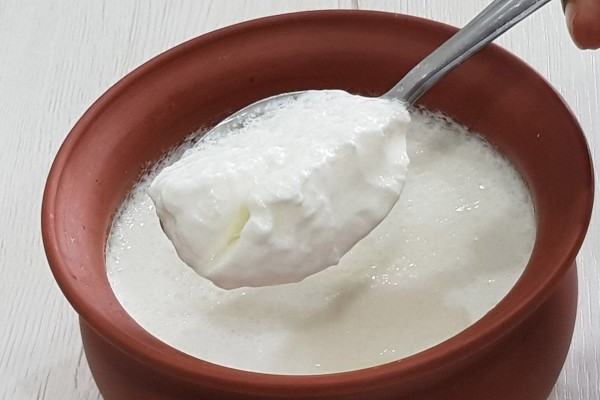
Do you eat curd during the winter time? Do you find it comfortable after eating curd during winters?
The product obtained by coagulating milk in a sequential process called curdling is curd. Many of us eat curd as it is good for our health. It is believed that eating curd especially during winters is not good as it could lead to issues like cold, cough etc. Even in Ayurveda, eating curd during night in the winters is prohibited as it might increase the mucus production. According to some nutritionists, eating curd especially during winters does not produce any harm in us.
There are many benefits of eating curd during winters like
Probiotics:
Our gut would become healthy when we eat curd containing beneficial bacteria. For our overall well being to be good, it is necessary that we must have good gut health. Truth is that probiotics could boost our immune system.
Nutrient rich:
It is noteworthy that curd is rich in nutrients like calcium and protein etc and these would play an important role in bone health, functioning of muscles etc.
Versatility:
We can consume curd in many forms like plain yoghurt, flavoured yogurt etc. Point is that curd can be a versatile and superb addition to the winter diet.
Immunity booster:
In the winters, our body would be prone to many infections and diseases etc due to poor immunity. By eating curd in winters, our immunity would get boosted. By this, we would be able to fight against infections etc.
Good digestive health:
By consuming curd in the winters, we could avoid digestive issues such as indigestion, bloating and constipation etc.
Provides warmth:
Internal warmth would be produced by eating curd. This would make us feel comfortable especially in the cold winters.
Supports weight management:
We would feel full when we eat proteins present in the curd. By this, we would not over eat and it would help in weight loss etc.
There are also few side effects of eating curd during winters and these are
Digestive comfort:
It must be noted that some people would find consuming cold foods like curd etc could be less comfortable for digestion. Hence, these persons must be careful.
Preference for warm foods:
To keep the body warm during the winters, many prefer just warm foods only. Therefore, opting for warm soups, teas etc would be more appealing.
Personal tolerance:
It is true that each person`s system would react in a different manner. Taking curd in moderation or eating different forms of preparation would be the solution for a person who has discomfort or respiratory issues etc after eating curd in the winters.
249

